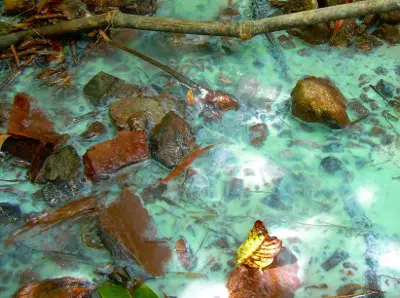What are the benefits of mineral mining and how does it affect the environment? How can environmental management maintain the ecological benefits derived from a healthy environment?
The extraction of valuable minerals from the earth has been a major preoccupation in many countries because of the society’s need for different kinds of metals to sustain economic growth. Metals have become a significant factor in the development of human society as these are closely associated with production of consumer items, facilities, transportation, among others that make life convenient to people.
14 Specific Uses of Metals
Specifically, valuable minerals serve as vital components of the following things that make life easy or convenient to people:
- computers that play a very significant role in today’s modern age,
- cars that bring people to their destination,
- airplanes that transport passengers across places and guard the country’s boundaries,
- railroad tracks and trains that bring masses of people from one place to another,
- ships that ferry people across the seas,
- farm machineries that make possible high volumes of crop production,
- cellphones and wires that facilitate communication between people,
- satellites that monitor the weather and aid in the study of the earth,
- construction materials for sturdy buildings and homes,
- appliances that make life convenient in homes,
- streetlights that illuminate the streets,
- kitchen wares for homes and restaurants,
- production of robots for various uses, and
- dams to supply the water and electricity needs of populated areas.
The list of the different uses of metals could go on and on among which the computers stand out as these have significantly affected modern living. Although advanced computer technology suggests that glass (fiber optic cables) will replace metals in the near future, currently, these are just indispensable.
Without metals all the above services will not be enjoyed by people. Because of metals, life has become much more convenient to man.
The Need to Mine and Its Environmental Impact
To keep on enjoying the benefits derived from metals, there is a need to mine these minerals from the earth. This is not easy, as it would take a lot of effort and cost to remove the valuable minerals from the metal ore. The ore is a naturally occurring solid material from which metals are extracted. From extraction to processing, mining activities have significant environmental impact.
Many environmental groups are against mineral mining because of its environmentally destructive impact. It spoils the ecological benefits humans derive from the environment like clean water, clean air, productive land, among others. Health-related concerns arise due to mining impacts on water brought about by acid mine drainage and increased soil erosion due to forest removal. Air quality is compromised due to increased emission of particulate matter. Soil quality deteriorates because of increased heavy metal input.

The Need for Effective Environmental Management
While there are negative impacts to the environment as a result of mineral mining, the benefits must be weighed against the cost. Both the environment and metals are important to human life. This is the essence of environmental resource management.
Thus, there is a need to manage the interaction between mining as an important activity of human society and the environment. For this reason, environmental impact assessments are made before starting a mining project so that decision makers are best informed as to what steps to make to sustain the ecological benefits that a viable environment provides. While the mining activities are going on, periodic environmental monitoring is conducted, and finally, when mining is no longer profitable, proper restorative measures are undertaken. These actions will prevent environmental disasters from taking place.
©Patrick A. Regoniel 19 May 2014

